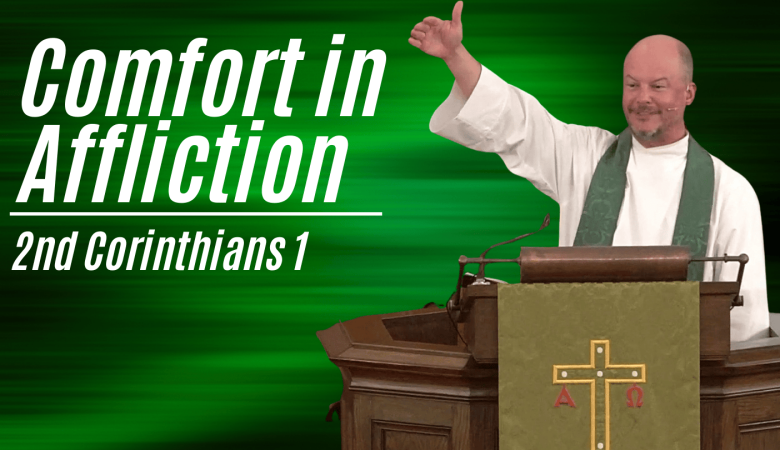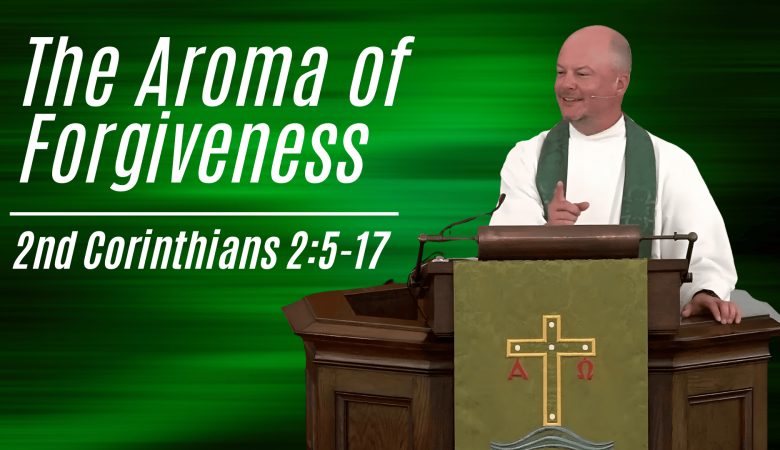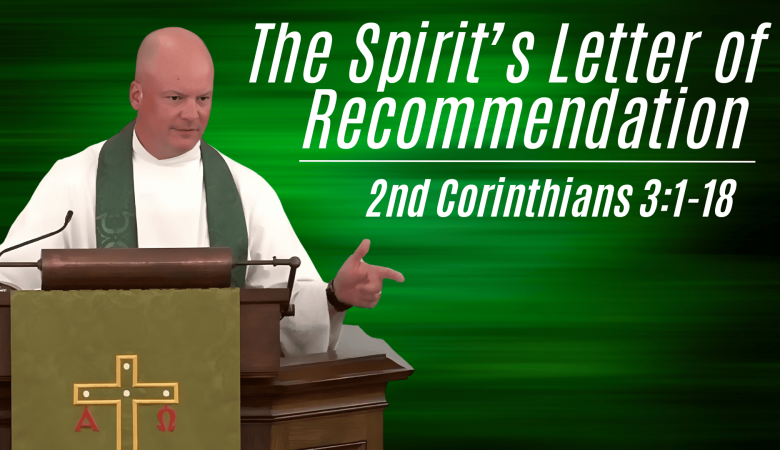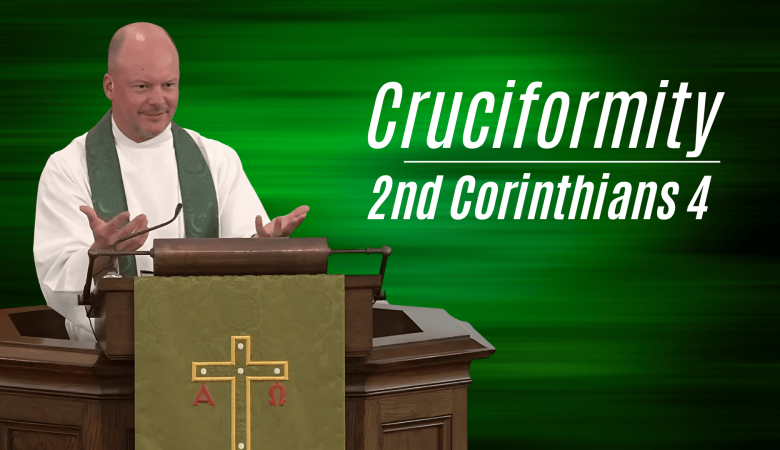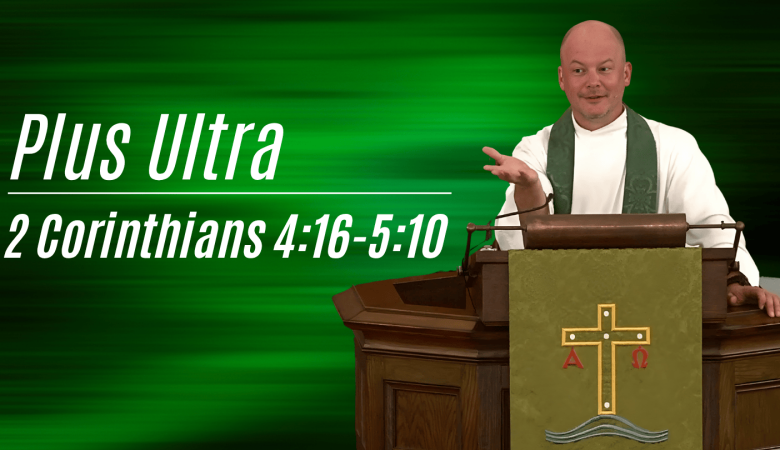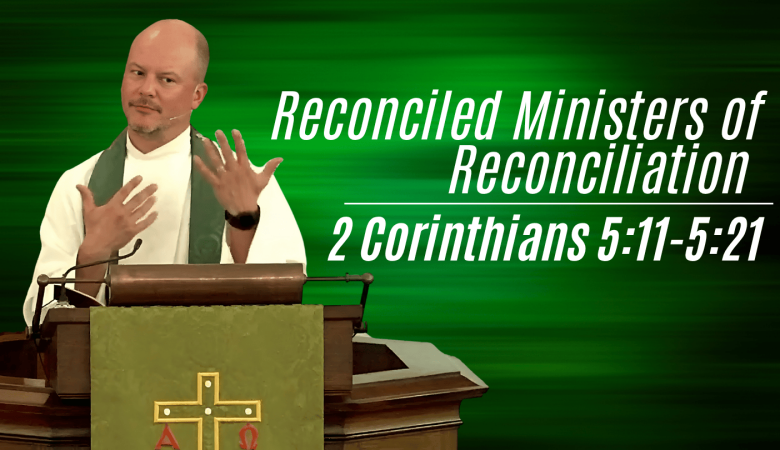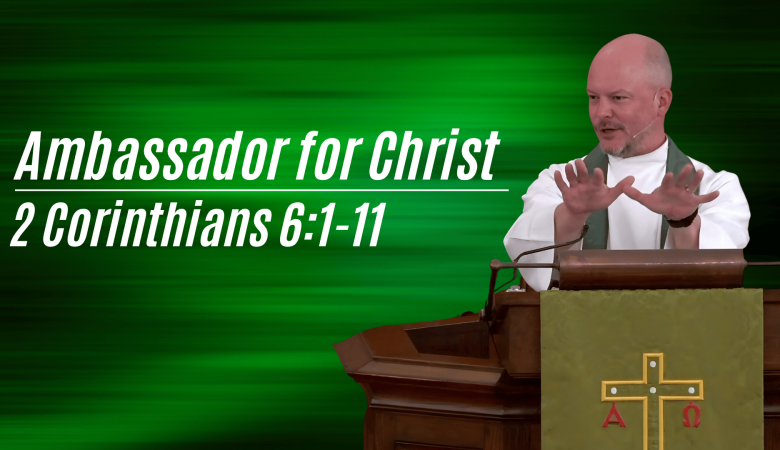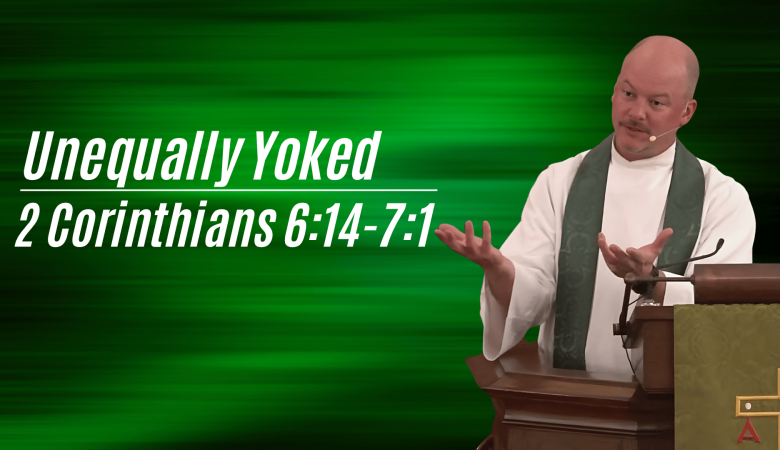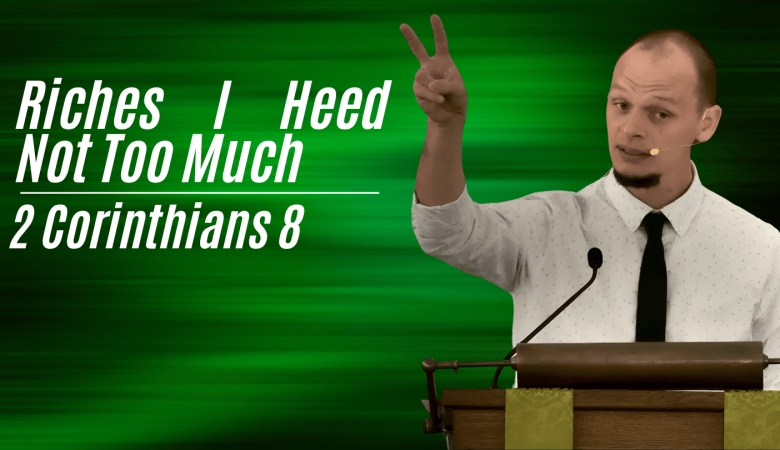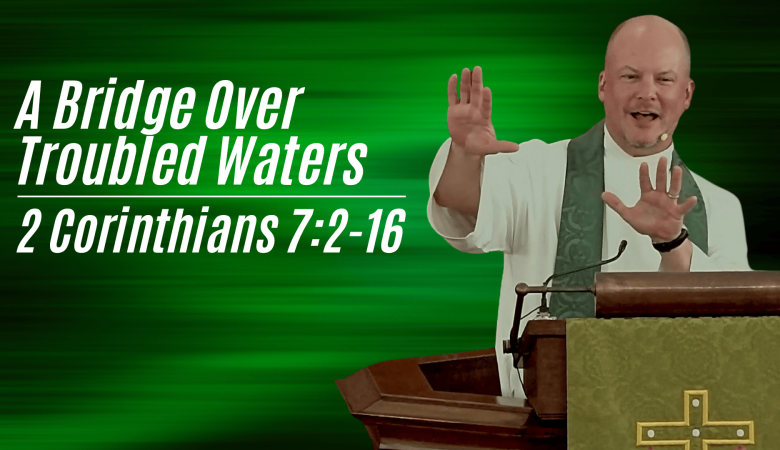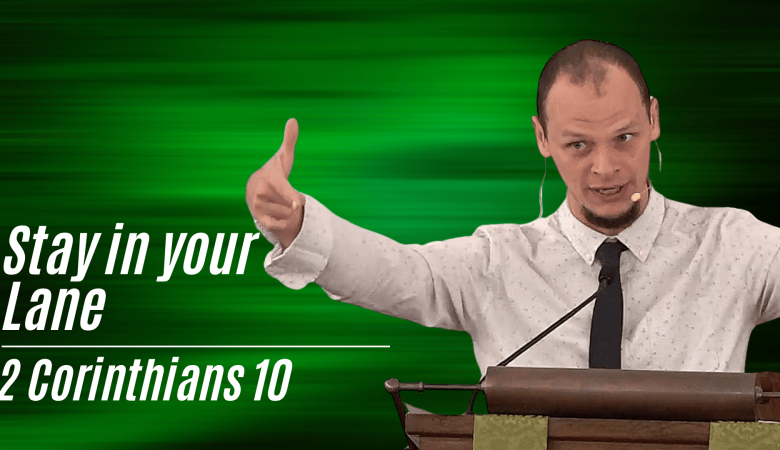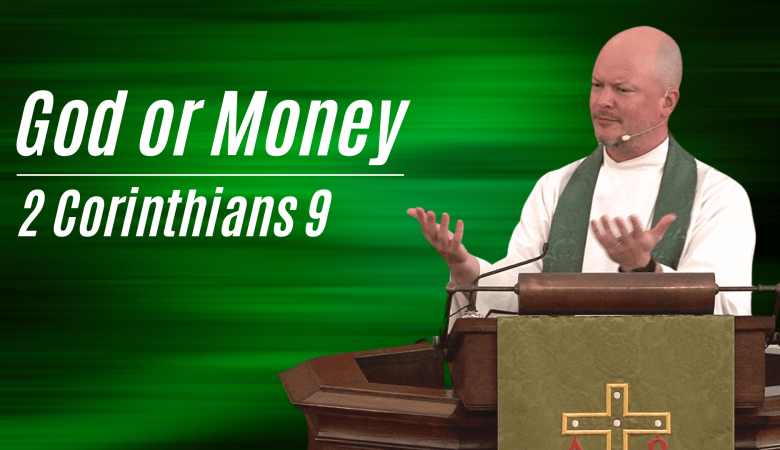Series: Power in Weakness
The Body of Christ
November 16, 2025 | Peter Rowan
Passage: 2 Corinthians 7:13-8:2
Summary
The church of Jesus Christ reflects the reality of God the Father, Son, and Holy Spirit—one yet many, one yet diverse. Just as children naturally resemble their parents in body, heart, and mind, the church as the body of Christ reflects God's nature through its unity in diversity.Paul uses the phrase "body of Christ" in four distinct ways: Christ's incarnation when God took on flesh, his resurrected body seated at the right hand of the Father, the bread and wine of Holy Communion, and the mystical union of the church itself. The Damascus road encounter powerfully illustrates this unity—when Saul persecuted Christians, Jesus declared, "I am Jesus, whom you are persecuting." Such intimate union exists between Christ and his people that attacks on the church are attacks on Jesus himself.
First Corinthians 12 emphasizes that eyes cannot dismiss hands, nor hands dismiss feet. The church is not a bag full of eyeballs. Each member brings necessary gifts to the whole body. Ministry belongs to everyone, not just a few. The body finds its life and direction through Christ, the head, who governs and guides every movement.
Transcript
Let me read for us. 2 Corinthians 7:13 down to 8:2 again. Therefore we are comforted. And beside our own comfort, we rejoice still more at the joy of Titus, because his spirit has been refreshed by you all. For whatever boast I made to him about you, I was not put to shame. But just as everything we said to you was true, so also our boasting before Titus has proved and true. And his affection for you is even greater as he remembers the obedience of you all, how you received him with fear and trembling. I rejoice because I have complete confidence in you. We want you to know, brothers, about the grace of God that has been given among the churches of Macedonia. For in a severe test of affliction, their abundance of joy and their extreme poverty have overflowed in a wealth of generosity on their part.
Let me pray for us. Lord God Almighty, we pray you would bless both the reading of your word and the preaching of your word. God open our hearts to you and to one another. Knit us together as one body. We pray. Amen.
All right. I want to say it's lovely to be with all of you. Certainly it's a little bit of a different Sunday, and it's a joy to have different Sundays, particularly with other Christians who worship in our own space. It's just wonderful to gather. Gather together.
We have been studying the book of 2 Corinthians this fall. And like 1 Corinthians, part of the great lesson of 2 Corinthians is the reality of the church of Jesus reflecting the reality of God the Father, God the Son, God the Holy Spirit. One yet many, one yet diverse. The body of Christ, when enlivened by the Spirit of God, reflects this reality of living as the children of the Father.
So some of you will remember this. We moved here nearly ten and a half years ago. And an early illustration that I gave, and I don't remember even what I was illustrating necessarily, it's going to use. Maybe it's a similar illustration this morning, but an early illustration that I gave was that early when Lilly was born, I heard from a number of people at our church that we moved from in Richmond that Lily was Peter in a dress. That is a funny idea, but praise the Lord. More and more, she resembles the heart and body and being of her mother and certainly her own person. But the fact is that it's true, right? Children resemble us in all kinds of different ways, uniquely, but they resemble us. Their bodies and their hearts and their minds are reflections often of their Parents and of the communities that they're surrounded by.
So if I ask you a question, this question, I will tell you there's many answers. Actually, there's a number of answers you could give. It's not indefinite. But if I ask you the question, where is the body of Christ? There's a few answers you could give. In Paul's writings, you can think of about four ways he uses this.
You can think of the body of Christ in his incarnation. God took on flesh. He walked among us. You can think or you can hear in Paul the body of Christ. In light of the resurrection and the ascension, Jesus is seated at the right hand of the Father. The reality is the body of Christ seated at the right hand of the Father.
You can hear the body of Christ in Holy Communion, the bread broken. This is my body broken for you. Think of the blood shed and the wine that we share together. One loaf, one cup, because there is one body.
You can also hear of the body of Christ in the mystical union of the church. The church itself is said to be the very body of Christ, those individuals gathered together in a corporate body who have faith in the work of the Lord Jesus.
Think with me if you can, of Acts chapter 9. There. Paul, though he wasn't yet called Paul, he was called Saul. He was on the road to Damascus, and he was on his way to arrest men and women who were following the way of Jesus. If you know the story, he had actually first been mentioned a couple chapters earlier in chapter seven, where he was standing over those who were putting their coats at his feet, which was to say he was presiding over in an authoritative way, the stoning to death of Stephen, giving testimony to the work of Christ. But then he was on this road to Damascus to do the same thing, kill those who were following in the footsteps of Jesus, who were part of his body. And there he was, literally blinded by the light right there on the road. And he hears a voice saying, saul, Saul, why are you persecuting me? And what's his response? Who are you, Lord? And the voice from heaven speaks back, I am Jesus, whom you are persecuting.
Which is to say there is such a union between the followers of Christ, between the brothers and sisters of the way, the men and women whom he was seeking out, and Jesus, that he could say, you are persecuting, not my followers. That's not what he says. He says, you're persecuting me. I'm Jesus whom you're persecuting. You could say, there's such a union between Christ and His people, between the head and the body, between the groom and the bride. That Jesus can say that his church, which Saul was persecuting, is him.
The church as the body of Christ is no small thing in the New Testament, particularly not in Paul's writings, but maybe specifically, actually in the Corinthian texts. Think of 1 Corinthians, chapter 12. I hope you know that chapter there's the famous verses about the eyes and hands and the feet there, right? Which is what he says is, hey, the eyes can't say to the hands, ah, I don't need you. I'm just good looking. And the hands can't say to the feet, I don't need you. I'm just good at the grabbing stuff. Right? Can't do that. In fact, there in verse 27, he says, now you are, which is wild. He doesn't say, you are, like, it's not a similitude. It's like ontology. It's their being. You are the body of Christ and individual members of it. Such a union between Christ and his body, the body, the church, the collective of Christians in their unity of individual parts, is the visible expression of Jesus.
And this, of course, means a lot of things. It means that ministry is not for the few. Right? That's part of the text. Part of the point is you can't just have the church. I've said this before, particularly in our membership classes. Newbiggin says, the church is not a bag full of eyeballs. That's a picture for us. It means mutual respect between different members. It means interdependency. We actually need each other. It means most of all that the body finds its life and its direction through the head. Our Lord Jesus himself, we're governed by him. We're given our movements and our direction. We find our lifeblood through him.
So we come to this text in 2 Corinthians 7 to the beginning of 8. And I want to point out just a couple things that we find, and this is throughout Paul's letter, but I think particularly right here also we get this. And what we find is the gifts of the individuals and the necessity of the gifts of the individuals and also the gifts of the collective. Okay?
So the gift of the individual, I said, you know, part of the point in 1 Corinthians 12 is that the eye is not the hand, the hand is not the foot, you know, and that because of that, we can't say to each other, I don't need you. I don't have any need of you. Rather that each and every one of us, in the various ways that you specifically have been gifted, are necessary for the life of the body to work properly.
And so Paul begins this passage in 2nd Corinthians 7:13 with saying, we are comforted. But then he goes on most of that paragraph to talk about Titus and Titus presence in his life and Titus presence in the Corinthians life. So what's going on, Titus? Titus is mentioned nine times in the book of second Corinthians. He's by far and away the greatest individual who's mentioned in the book. Nine times he's mentioned. And seven of those nine times are mentioned right here in chapters seven and eight.
The first time is back in chapter two. And, and some of you might remember when we look at this, because Paul says, there my spirit was not at rest because I did not find my brother Titus there. And let me help you remember this. So Paul says he had gone to Troas, and he says there was a door opened for him for the Gospel there in Troas, which is like a missionary's dream, right? Or a pastor's dream. It's just clear that God is at work. And yet he says, my spirit was not at rest because I didn't find my brother. We know he didn't stay there because Titus wasn't present with him in the work he was given to do. So they left and they go on to Macedonia, which is to say, as great as the opportunity was, he wouldn't take it without his right arm, without the hand, the eye, the foot.
Then in chapter seven, verse six, he said he was comforted by Titus. Here in 13, he says that the Corinthian church as a whole was comforted by Titus. And I'm not going to go through all the different references there, the nine different references to Titus. But part of the point is that the ministry of Paul is dependent on this other, this other individual. And the comfort and the joy of the collective body of the Corinthians was dependent on Titus gift of the individual, the specific person that is part of this greater body.
What's certainly clear here in this passage in 2 Corinthians is the necessity of the gifts of each individual. Paul says, when he's talking about the body of the church of Jesus in Ephesians 4, which is another one of the great passages of the body that Paul has written for us. He says, when each part is working properly, makes the body to grow so that it builds itself up in love. And what that implies is that when each Part of the body is not working properly. The collective doesn't reflect the body properly. Each individual offers something that is necessary. So the gift of the individual.
But think of that passage in Ephesians 4, when each part is working properly. And so let's think of a few ways in which maybe the individual parts don't work terribly well, that we suffer from different illnesses in the body when each individual part isn't properly working.
So think about amputation. You know, the idea Maybe there in 1 Corinthians 12, I have no need of you. Let's cut you off. Okay. Sometimes we cut ourselves off from the body. I. I don't think you actually need this hand. This. This foot is not helpful. I am not helpful. We. We don't maybe want to commit to the idea of interdependency. For the hand to thrive, it actually has to be connected. Well, we draw back from costly shared life together. We check out. We find worship as an option when convenient. We decide that there are times when our part of the body isn't needed, but the amputated limb can't live and what remains of the body cannot function. Well. Each part is needed.
Think of elephantiatis. I'm not sure if you say that right. And I was surprised when I actually was looking up these different ideas that that's a word and it's a disease. It's actually when a limb swells up due to a parasitic worm that blocks limb fluids. I don't really understand that you get the idea elephantiatis. Something gets enlarged, a member. Let's just be honest. Often a pastor has an inflated view of themselves. And what happens then in the body is that in the body of the church is that others don't have the opportunity to actually use their gifts. So much energy is being used for this inflated part that the others become diminished.
Think of atrophy. Somewhat related members just sitting in the pews, keeping them warm. Church becomes spectacle, right? Something to simply observe, to take in, rather than participation. When you sit there, when one part of the body doesn't exercise its muscles, what happens? It atrophies. Your spiritual life atrophies when you do this. The body as a whole, our spiritual life atrophies when we do this, even the strength that you once had begins to diminish, and the health of the body as a whole weakens.
Think of fractures in our bones. I've only had one of those actually in my life. I was going off a big jump on a snowboard and I smashed my thumb and I had to tape it, and I couldn't use my hand for a while while it healed. Think of fractures in the body. Church members fall out with one another. And your falling out with another individual is never just about the two people who fall out in life of the body. It never is. That fracture affects how the entire body is allowed to function. Give how Paul in First Corinthians tells them, don't take one another to court. Yeah. Deal with it inside. Why would he do that? Because he knows that if there's this great fracture that takes place even among these two individuals, the whole body will be harmed.
Of course, we could keep going, but if a church is to be the body of Christ, and if the body is to grow so that it builds itself up in love, then each and every part must bring the gifts that it's been given. Paul, both in his ministry of preaching in troas and in his comfort over his concern for the church in Corinth, both of those things needed Titus, which say without him, they actually couldn't really happen. Titus isn't a take it or leave it figure in these communities or with Paul.
And here is. Here's. Here's what comes out of that. Neither are you. You are not. Each and every one of you are an important member of the body. And without you, it does not grow, it does not function, it does not build its up properly in love. You are an essential member of the body of Christ.
If you are getting a little older. We celebrated Mary turning 97 last week. She's an essential part of this body. You are, if you are a young one in our nursery. I know some of our nursery folk are watching right now. You are an essential part of the body of Christ. If you are a young parent with. With little kids just frazzled, you bring an essential part of the body to this life together. You are if. If you are a single adult, and often churches are full of, you know, family ministries, single adults. You are loved and you are needed. You are essential to the body working properly. The gifts of the individual.
But there is. There is actually this flip side in this passage, and this is. I was so glad when this passage kind of landed on that we get together with part of our Kenyan fellowship that meets in the afternoons. Because this passage really is not just talking about the necessity and the gifts of the individual, but as soon as you turn to the next chapter, it gets to the idea of the gifts and the necessity of the collective. Okay, so just as we know the gifts of the Father and the gifts of The Son and the gifts of the Holy Spirit. In theology, we call this the economic working of the Trinity, that they have different ways in which they are working out for our salvation, working their gifts out for our salvation. Well, we know the gift of receiving God as Trinity. Also, collectively, God comes to us as Father, as Son and as Spirit, but also as one, as collective. The gifts of the individual and the gifts of the collective are for the church, too. Both of them reflect God.
So Chapter eight, Chapter eight is mostly, I know Jed preached a couple weeks ago about that and did a very fine job. Most specifically, it's about giving. And it's about giving, particularly for the needs of the church in Jerusalem. Paul, this is a big part of Paul's mission. Actually. He mentions this collection actually at the end of First Corinthians in chapter 16. He also mentions it in Galatians. And we know that he did get back to Jerusalem, you know, Acts chapter 21.
But there's a very important lesson that's taking place in those little verses that I read for you in the beginning of chapter eight regarding the body of Christ, because there are very, very clear texts like the ones I've mentioned, Ephesians 4 and 1 Corinthians 12, that talk about the necessity of each individual. But it's also true that there's a necessity of the collective body working together, that as we as individuals work together well, we build up the collect properly.
So in chapter 8, verse 1, he wants the Corinthian Church to know about the grace of God that has been given, he says, among the churches in Macedonia, which is a region, but we know those are collective bodies within that region. Think of the churches of Macedonia. You can think of the church of Philippi or the church of Thessalonica. It's almost like he's mentioning Macedonia as a presbytery, that whole region of churches. But then he mentions them together. There's a benefit to the collective, and he's saying that as bodies, they are collectively part of the gift of God to the church. The part of sharing the gifts of the collective body is part of sharing the grace of God, he says.
And I think what's really lovely about this, too, is that what's very clear in that passage in Chapter eight, even in these first few verses, is that he doesn't equate sharing the gifts with some kind of extraordinary means. You know, he's not like, oh, man, these people have their music together. You know, they're one of, you might know this. There's four big musical groups that put out, like, 90% of church music now, Hillsong and Bethlehem, places like that. He's not looking at, like, oh, man, these people, I've got to tell you about them because of this extraordinary thing. He says it's actually out of their poverty that they share. It's out of their weakness that they actually extend the gift of the grace of God. Maybe we could say it's actually out of their poverty that they reflect God in a unique way as the one who became poor, that we might become rich.
But all this is to say is that we need one another. And we don't just need one another in the individual sense, but we need one another in the collective sense, which is to say, Kenya, Rwandan speaking Brothers and sisters, it is a gift to us that you are in our space and part of a broader collective, right, different bodies that we can look at and say thanks be to God because you offer us something, something, and we grow because of you.
Let me just mention a couple fairly simple and maybe obvious things. We know the reality of a God who is over all things by the fact that different languages praise him. We know the reality of a God who's over all things by people from different countries praising him. We know the joy. We know the joy of the promise that we have that every tribe and tongue, right will praise him by the fact that in our space, on Sunday afternoons, a different language is praising the very same God. What a gift to us. I mean, that's a gift to my children to know the great global reality of the body of Christ. It is a gift, and it's a collective gift that you sort of offer. Offer as individual, but not remotely in the same way you help us know Jesus better. And quite honestly, I hope we do the same for you. Hope you know some of the grace of God through this body. Second City Church maybe. Maybe you praise God in some kind of unique way because you're here. You're connected to this group of folk that call Harrisburg home and this church, the Body of Christ to which they belong.
Let me end by telling you of the happiness of belonging to the body of Christ. So if the idea that Lily was Peter in a dress brings you joy, which I hope it does, I hope that the reality that the church is said to reflect our God, Father, Son and Holy Spirit, yet one God, I hope that gives you a deeper joy and a greater happiness. I remember when I told you that story, and I remember telling you that story in part, because I have been told many times that I told that story and it's always been with laughter. And I think, like I said earlier, I think it's often shared with laughter because of the idea of picturing me in a dress or of just somebody saying that kind of thing. But I hope also that it's the fact that maybe my daughter is my daughter. And there's something sweet about being told, you go together, you belong.
I do also hope that you smile and take joy in the reality that the church, the body of Christ, is to resemble God, Father, Son, and Holy Spirit. Diverse, yet one we confess, the Father is not the Son, the Son is not the Spirit, the Spirit's not the Father of the Son, and yet one. One being distinct, yet bringing their gifts to the whole. The whole not existing without the individuals.
So maybe you've heard this. Actually, I really hope you've heard this. But there have been a number of studies done recently saying that religious people are happier than non religious people. Maybe you're not a Christian here this morning, and maybe you hear that and you think, yeah, maybe that's true. Or maybe you hear that and you go, I don't like. Well, I don't know. Maybe. Maybe you hear that and you think, maybe I should consider Christianity.
Anyway, Pew did another research project about this over 2023 and 2024. So it really is very recent. And they surveyed 37,000 people. So it's not a small sample. It's pretty good sample size. And I'm going to share with you just a few of what they found, a few things they found out. The study showed that of the people who never attended religious worship, 19% say they are not too happy, 22% say they are very happy. And the survey breaks down. Okay, the survey breaks down to a few different categories. It's those who say they're seldom. They attend religious worships seldomly, yearly, monthly, weekly, and then more than a week. Okay, so it's. They're actually trying to gauge happiness by how often do you attend a religious gathering?
So the people that don't attend, say, 22% of the time, they're very happy. Well, here's the interesting thing. That at each stage, at each stage, the happiness grows. No kidding. So 35% of those who attend weekly say that they are very happy. But here's what I found really interesting. 43, it jumps by 8% who attend a religious gathering. Think of a small group or choir plug or ESL plug. 43%, you have 8% more chance of happiness. I mean, truly, that's a rather astounding thing. In a world that is so full of anxiety and worry, the more active you are, the more you bring your individual gifts and they are received by the collective body, the happy you are.
Now, of course, there are many reasons for this, but think about this, right? Last week we considered in, in chapter seven, par Paul's sorrow and affliction, which is a very big part of Second Corinthians. It is. It's something we all experience sin and broken relationships with God and one another. They produce sorrow and affliction. None of us are immune from this. And yet, if you can remember back to last week, I know that was a whole week ago, but if you can remember, how is Paul's sorrow and affliction turned to joy? And I suggested to you that there were really two ways. One was the reality of being reconciled to God, this relationship being healed, the vertical. And then the other was the horizontal. That we receive actual joy and happiness in the life of others who have received joy and happiness and comfort through God, life in the body of Christ, life with God, Father, Son and Holy Spirit. And then life lived out, not amputated, not atrophied, not elephantiatis, dead, whatever, but lived out, loving and respecting and cherishing the gifts of the individual. Wondering at the gift of a collective body and how collective bodies share with one another that kind of happiness, joy and comfort held out for you.
So if you want to laugh, sure, laugh at the idea that our children resemble us. It's a joyful thing. But if you want a deeper joy and a lasting happiness, then enter into the body together, together, pursue together and reflect together the Father, the Son and the Holy Spirit. Amen.
Series Information

Second Corinthians is Paul’s defense of his love for and love toward the church in Corinth. Paul’s defends his apostolic ministry against critics who question his authority. He recounts profound suffering—beatings, imprisonment, near-death experiences—yet refuses to boast except in his weaknesses. Through personal vulnerability, Paul reveals Christ's power working most effectively in human frailty. He describes his mysterious "thorn in the flesh," where God's response becomes the letter's centerpiece: "My grace is sufficient for you, for my power is made perfect in weakness." Paul embraces this paradox, demonstrating that divine strength flows through broken vessels. His authenticity and struggles validate rather than undermine his ministry, proving that God's power shines brightest through human limitation and dependence.

